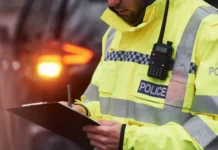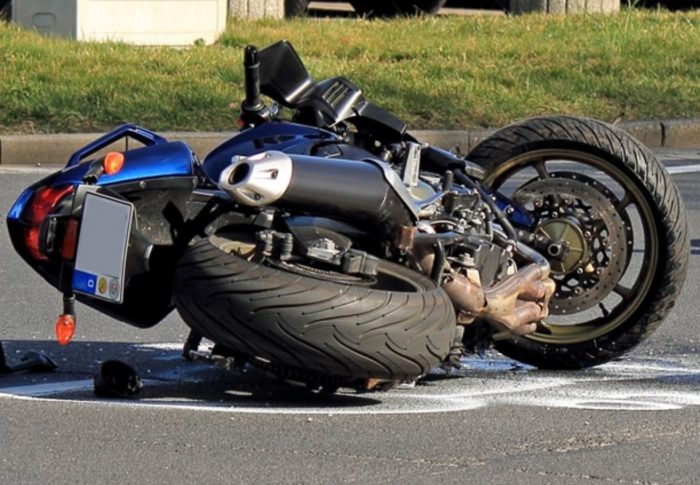
You would be surprised to find that motorcyclists in Florida do not have any mandatory requirement to wear a helmet when riding if they are covered by an insurance policy that exceeds a legally stipulated amount. Owning a motorcycle is fun, but knowing the rules that govern your ownership is essential to enjoy the perks that come with one, and it is a valuable advantage to help you understand what rules to abide by. Finding an experienced lawyer knowledgeable about motorcycle laws as a contingency should you ever find yourself involved in a motorcycle accident is equally essential. This article will shed some light on the vital requirements and any additional regulations that will assist you to have a worry-free journey with your prized motorcycle.
According to the Florida Department of Highway Safety and Motor Vehicles Administration statistics, Florida has many motorcycle accidents compared to all the other States in the country. There has been a steady increase in accidents within the past twenty years, with approximately nearly 5000 deaths occurring each year. This means that motorcycle accidents account for almost 15% of the total road accidents, which increases the chance of a person’s direct involvement in an accident by more than 80%. But why is Florida such a dangerous state for motorcyclists? In 2000, a law was passed that allows a motorcycle driver to ride without any use of a helmet or adequate protective gear if an applicable health insurance policy covers you. However, most motorcyclists do not have the required insurance to waive the use of wearing protective equipment. Yet, it is estimated that 1 out of 7 drivers do not wear protective gear even when they are not covered by health insurance.
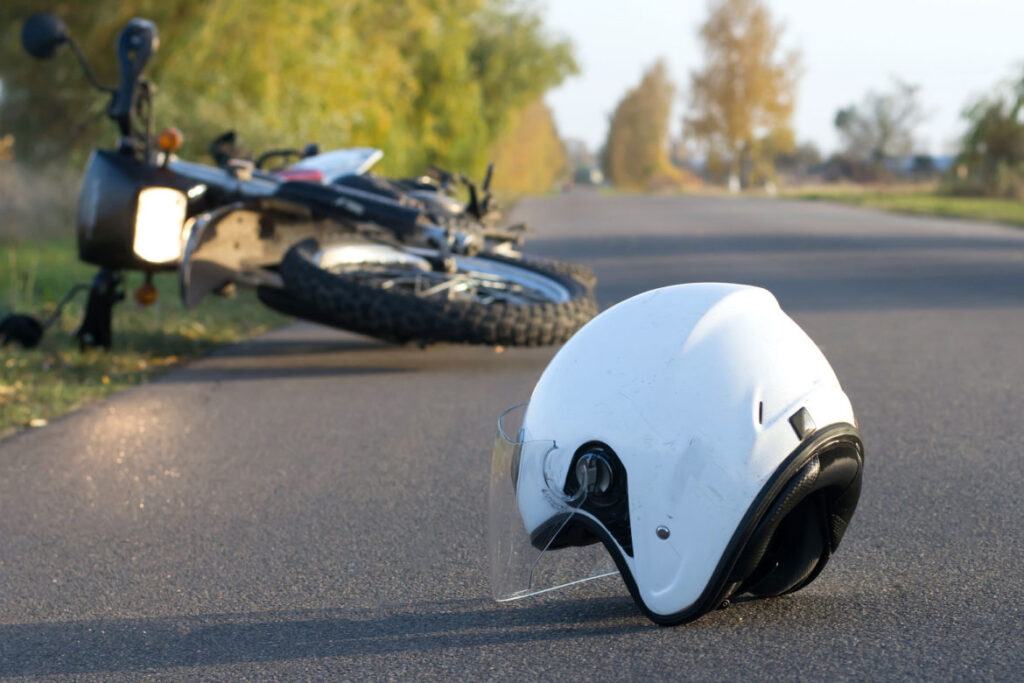
Common Causes of Motorcycle Accidents
There are other contributing factors to the spike in motorcycle accidents in this state. Below you will find a summary of the most common causes of motorcycle accidents in Florida.
-
Left-hand Turns
These account for nearly 50% of the accidents that occur between motorcycles and cars. This is an alarming situation where a car strikes a motorcycle while trying to overtake or cross the intersection. Even though these accidents are also shared between two vehicles, a motorcycle’s chance of survival is less likely, especially when speeding is involved. The bike’s size usually makes it difficult and less visible for motor vehicle drivers, which can result in a disastrous accident.
-
Head-on Collisions
These are common amongst all vehicles, but in approximately 80% of head-on collisions, the car is most likely to strike the motorcycle from the front. These types of accidents can be very pernicious, particularly for the motorcyclist.

-
Lane Splitting
When motorcyclists drive between lanes when there is slow-moving traffic, there is generally less space to maneuver, the vehicle drivers may not be aware of the intention of a motorcycle driver to pass, so the cars are most likely to be closer to the motorcycle and as a result, it can cause a major accident.
-
Drunk Driving and Speeding
The majority of accidents involving motor vehicles and motorcycles implicate drunken driving and speeding. The low sight of other drivers because of cognitive dissonance caused by alcohol, results in fatal accidents.
Prevention of Motorcycle Accidents
If you are having trouble with coming to terms with the Florida motorcycle accident stats and causes, and you would like to find out tips that are useful for preventing finding yourself in a motorcycle accident that could have been easily avoided. Listed below are some of the things that you can do to keep yourself and your family safe on the road.

-
Buy The Right Size
If you are a first-time motorcycle buyer, then you need to do thorough research before you select one. Motorcycles may look smaller than motor vehicles, but they are heavy and powerful machines. If you are unfamiliar with handling them, you may put yourself and others at risk.
-
Know Your Controls
Knowing how to handle navigation mechanisms for complex roads is important. For example, a throttle helps to drive past tight corners, so comparing different models is helpful to understand what works for your riding experience.
-
Learn More
Taking an advanced riding course can help you learn riding techniques that could help prevent a minor or fatal crash. If you are having trouble with syncing safety riding and speed, then a riding course could teach you how to do both and prevent getting into an accident. Additionally, it helps to improve your riding posture to ease the discomfort in your back.
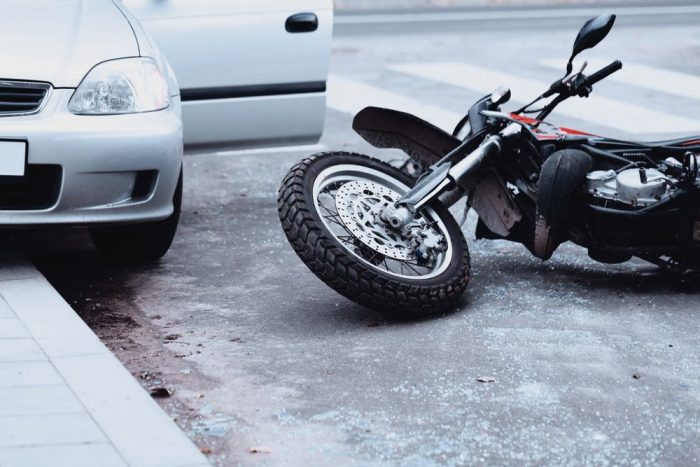
-
Use Safety Gear
Even though it is not a mandatory minimum requirement for certain motorcycle owners, wearing safety gear and a helmet is still essential. It will protect you from a severe head injury and other severe injuries if you ever find yourself in an accident. So, a properly fitted helmet with a face shield, boots or adequate sneakers, and whatever else is appropriate for the weather is what you should invest in for a comfortable riding experience.
-
Check The Weather
Be cognizant of which weather conditions affect your riding capabilities and prepare in advance for any potential weather changes.
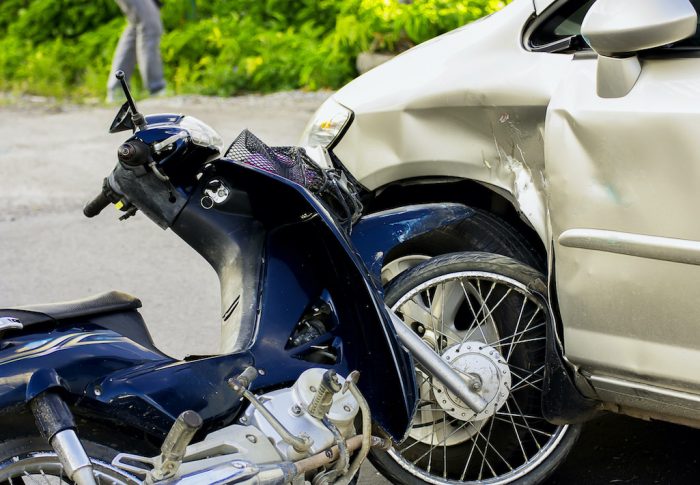
The Bottom Line
If you are unfortunate to find yourself in a predicament that involves you getting injured or injuring someone else due to a motorcycle accident, you may require the services of a personal injury lawyer who has experience in dealing with such matters. Additionally, there are things that you may need to ensure that you do following a motorcycle accident, such as conducting a checklist by gathering significant information and getting your health insurance ready for getting checked out for unnoticeable complications.
Moreover, there are very significant differences that apply to motor vehicles and motorcycles in this area. If you want to find out more about how to go about finding the right kind of personal injury lawyer who will give you all the relevant information about motorcycle laws in the state of Florida, then click here.


